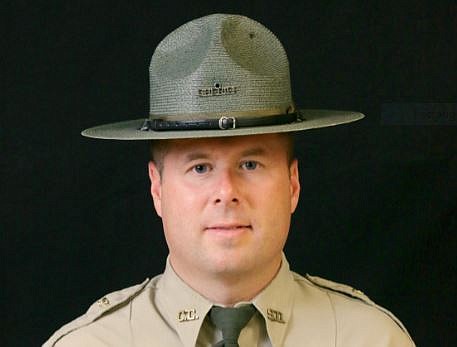Callaway County Sheriff Clay Chism fears recent changes to Missouri's bonding rules will cost taxpayer money and public safety.
"Without a doubt, these bonding rules will create a further strain on our staffing resources," Chism said in a Thursday statement.
On July 1, new rules set by the Missouri Supreme Court went into effect across the state. The new rules prevent courts from setting bail for certain non-violent offenders. As then-Chief Justice Zel Fischer explained during the January State of the Judiciary address, the changes are intended to keep impoverished people from sitting in jail while awaiting a trial.
"Too many who are arrested cannot afford bail even for low-level sentences and remain in jail awaiting a hearing," Fischer said. "Though presumed innocent, they lose their jobs, cannot support their families and are more likely to re-offend."
Fischer said courts may not order a defendant to pay costs associated with conditions of their release, such as the costs of an ankle monitoring bracelet, without first considering reducing or waiving those costs. Judges will only be allowed to order defendants to be jailed before trial without bail or another opportunity for release if they determine it's necessary for public safety.
"There is no longer a legal presumption that a felony offense will automatically lead to the issuance of an arrest warrant and a monetary bond setting," Chism said. "Previously, short of a few case-by-case exceptions, nearly all felony arrests led to the issuance of an arrest warrant and a monetary bond setting by your elected Callaway County judges."
Judges are now supposed to weigh everything from the offense's circumstances to the defendant's past record of appearance at court proceedings to the results of a risk-assessment algorithm.
Even civil rights organizations object to that last step. The NAACP and American Civil Liberties Union, among others, have pointed out that data used to build risk-assessment tools isn't without bias. A 2016 study from ProPublica found, for one, the algorithms were bad at predicting whether a defendant would re-offend upon release.
For another, the algorithm showed racial bias: Given two identical defendants with only the race changed, the black defendant was 77 percent more likely to be tagged as likely to commit a future violent crime. (Real-life crime statics don't bear those numbers out, ProPublica said.)
Chism concerns
Chism said old methods of deciding who would be given bond or released on summons worked just fine.
"Over my past 19 years at the sheriff's office, I sincerely believe our local Callaway County judges have continuously demonstrated fairness to all involved in the court system," he said. "I am the first to say (that) defendants should be treated fairly in the court system. I am also the first to say, I believe victims should be respected and treated fairly as well."
Chism fears the latter won't happen under the new rules.
"If you are the victim of a crime such as burglary, theft, property damage or forgery (the list goes on and on), and the offender is arrested, there is a distinct possibility the offender will be released with a summons as opposed to a warrant being issued and the defendant being required to post a monetary bond," he said.
The sheriff's office has already seen a community backlash against the rules, with locals questioning why some arrested persons have been released on summons, Chism added.
He predicts budgetary impacts as well. Chism said it seems "inevitable" that more defendants will fail to appear for court dates, meaning more time spent tracking down and re-arresting fugitives.
If any Callaway County fugitive makes it out of the state but is arrested elsewhere, it's the sheriff's office's job to handle the extradition.
"This will definitely have an adverse effect on my agency's manpower and budget," Chism said. "As the elected sheriff, I literally assess my budget daily and work within its parameters."
He asked members of the public to remember the new rules weren't chosen by the local Sheriff's Office, nor can he override them. But, he said, his office will do its best to offset potential damage.
"I share these concerns with you as your elected sheriff," he said in the statement. "In fact, most elected sheriffs across this state agree with you. In Callaway County, heightened public safety remains my paramount duty."

